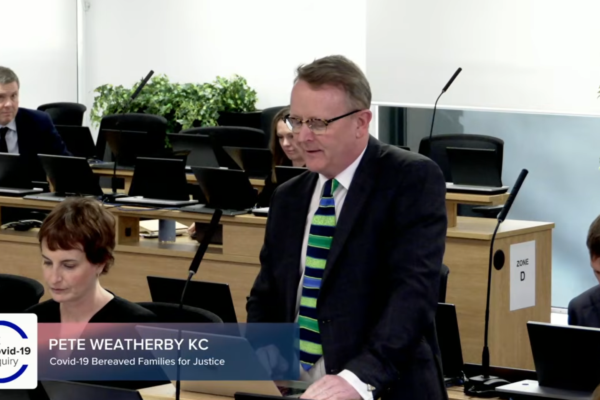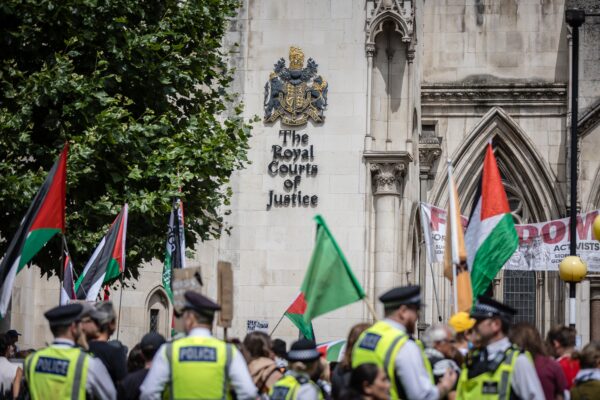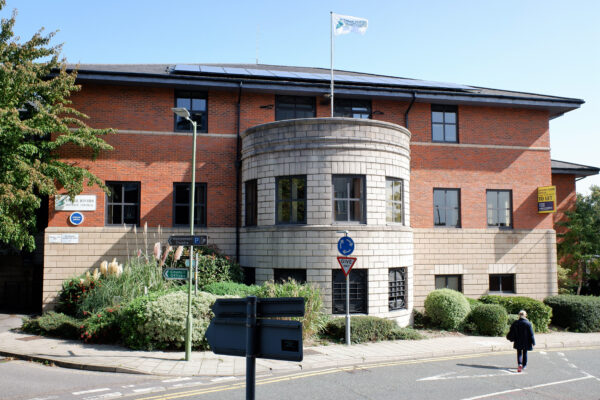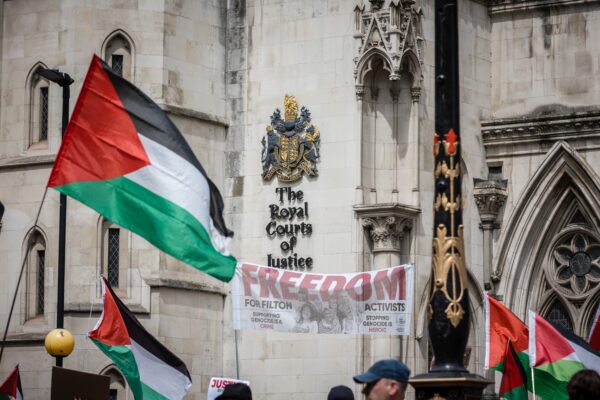A Duty of Candour, Duty to Assist, and Legal Funding for Bereaved Families: Hillsborough Law to be presented in Parliament
16 September 2025

Wreaths and tributes to the 97 at the Hillsborough Memorial outside Anfield Stadium in Liverpool. Credit: Alex Blair / Garden Court North Chambers.
The below op-ed was written by Garden Court North’s Pete Weatherby KC, who has represented many of the bereaved families involved in justice campaigns including Hillsborough, Covid-19, Grenfell, the Post Office scandal, and Manchester Arena bombing. Pete led the team which drafted the 2017 Hillsborough Bill, and is one of five Directors of Hillsborough Law Now, which led the meetings with ministers and officials resulting in the new Bill being debated today (16 September 2025) in Parliament.
The Government is at last, today, laying before Parliament a Bill which is fit to be called a ‘Hillsborough Law’: the Public Office (Accountability) Bill 2025. It has taken eight and a half years to get to this stage since Andy Burnham and Steve Rotheram, now Metro Mayors of Greater Manchester and Merseyside respectively, laid the original Hillsborough Bill before Parliament for its first reading, at the behest of the families of the 97. The 2017 Bill had cross-party support by MPs from Labour, the Tories, the then leader of the Liberal Democrats, the SNP, the Greens and the SDLP. It fell only because of the 2017 General Election, and to their shame, subsequent governments chose not to reintroduce it.
Since then, the Hillsborough families have been joined in their campaign by those bereaved and affected by the Grenfell fire, the Manchester Arena bombing outrage, the Post Office, Contaminated Blood and Primodos scandals, the Nuclear Test Veterans, the Covid bereaved, and many more justice campaigns including those for Ruth Perry and Zane’s families. INQUEST, the charity which supports families bereaved in state-related deaths, and JUSTICE, the law reform group have long supported the campaign, as have many former senior judges and chairs of public inquiries, as well as huge numbers of MPs and peers, and the former Bishop of Liverpool, James Jones.
The reason why so many justice campaigns have supported this law is because the legacy project of the Hillsborough families was aimed at preventing the industrial scale cover-up which happened to them from occurring again. Sadly, to one extent or another, the pervasive institutional defensiveness which, for decades, corrupted the Hillsborough families’ search for justice, has happened again and again in all of those cases, and many other lesser known ones.
Hillsborough Law is no aspirational campaign law, it is owned and promoted by the Hillsborough families, but it was engineered by lawyers. The mantra from beginning to end has been ‘practical and effective’. It is aimed at changing the culture of public bodies and corporations doing public work or responsible for public health and safety, so that they tell the truth when things go wrong. That sounds like a no-brainer, but regrettably obfuscating, putting institutional reputation above truth and justice – and change to prevent disasters in the future – and sometimes outright lying, are the norm and not the exception.
Having been drafted, the 2017 Bill was subject to the scrutiny of an academic conference, and it was roadshowed across the country, including before lawyers who predominantly act for public bodies and corporations at whom it is directed. It has withstood scrutiny, but it has generated formidable opposition from those who will be affected. Why? Because it will work.
No law is a complete panacea, a silver bullet to right all wrongs, but if the 2025 Bill remains intact and is properly and fully rolled out, it will massively narrow the opportunities for cover-ups, and will provide backstop criminal offences and sanctions for those bold and corrupt enough to try. It will also support and protect the vast majority of ordinary decent public servants who go to work each day to serve us the public. It will do so by preventing their managers or top officials pressuring them to join in with smoke and mirrors, and will protect them if they step forward and call out wrongdoing.
The law contains three pillars.
Firstly, the duty of candour: a requirement on all public bodies and private entities caught by the provisions to have codes and policies to ensure candour through their organisations, with a backstop offence to criminalise misleading the public in a significant way.
Secondly, the Bill provides a duty to assist, applying the duty of candour practically and effectively to inquiries and inquests, and a raft of other investigatory bodies which will ultimately include Combined and Local Authority inquiries, Ombudspeople investigations, the HSE, IOPC, CQC and others. This duty will require position statements, and the proactive production of information to investigators, at the earliest reasonable point. It so requiring it will deliver better, swifter justice, and save substantial amounts of public funds. Again, there is a backstop offence criminalising intentional or reckless non-compliance.
Thirdly, the Bill includes the extension of non-means tested public funding for bereaved families at inquests where the state is itself represented. This alone will substantially rebalance the scales of justice and allow families to hold public officials to account.

The Bill contains no carve outs for the Security Services or Military, but it does rigorously safeguard national security, and constitutional measures including the privilege against self-incrimination and privacy rights.
The current Bill is by no means perfect, but it substantially delivers what was in the 2017 Bill, and has therefore been endorsed by the leading families and the campaigns. It has been the product of a hard-fought campaign by the families who have consistently told the Government: “All or Nothing”.
The road has been rocky even with this administration. The Prime Minister was well-sighted on the 2017 Bill having been Director of Public Prosecutions during a key stage of the Hillsborough journey. In 2021 he headed a list of MPs, including David Lammy, who unsuccessfully moved the whole of the 2017 Bill as an amendment to the Police, Crime, Sentencing and Courts Bill. In 2022, the Prime Minister publicly stated that he would enact the Hillsborough Law as one of his first acts on coming to power.
Regrettably, instead, his Ministers, no doubt urged by officials and others with skin in the game, sought to rewrite the Bill, and by March of this year produced a replacement which satisfied none of the pillars, failing to provide a duty of candour at all, or mention rebalancing of representation. Since that time, no less than four Ministers and a number of officials have briefed against the Bill, and there has been a long series of meetings between the campaign directors and families on the one hand, and Ministers and officials on the other, which has been something of a war of attrition.
None of that matters now, save to caution that although this is a momentous day for the families, campaigns, our justice system and improved future confidence in public life, there must be hypervigilance of Hillsborough Law’s legislative journey, to counter any attempts to remove the teeth from the Bill. Only if the Bill emerges unscathed and is brought fully into force will the Hillsborough families’ legacy be delivered.
Alongside Pete Weatherby KC, numerous members of Garden Court North’s inquests and public inquiries team have worked tirelessly to represent bereaved families whose loved ones have been the victims of state-related disasters.
Additional media
The Guardian – Hillsborough law will mean serious wrongdoing is punished, says Lammy
BBC – Hillsborough Law will include duty of candour
INQUEST – A win for families: Government finally introduces Hillsborough Law to Parliament
For further information, please contact Alex Blair, Communications Manager at Garden Court North Chambers: ablair@gcnchambers.co.uk





